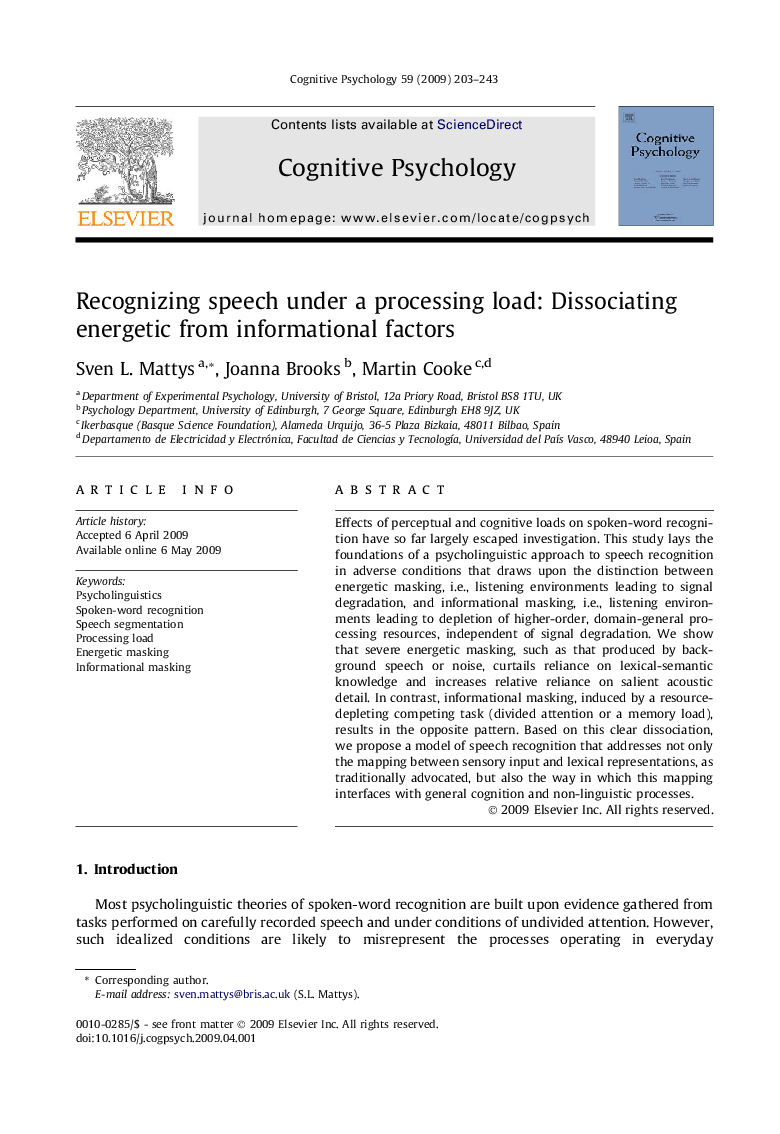| کد مقاله | کد نشریه | سال انتشار | مقاله انگلیسی | نسخه تمام متن |
|---|---|---|---|---|
| 917019 | 919028 | 2009 | 41 صفحه PDF | دانلود رایگان |

Effects of perceptual and cognitive loads on spoken-word recognition have so far largely escaped investigation. This study lays the foundations of a psycholinguistic approach to speech recognition in adverse conditions that draws upon the distinction between energetic masking, i.e., listening environments leading to signal degradation, and informational masking, i.e., listening environments leading to depletion of higher-order, domain-general processing resources, independent of signal degradation. We show that severe energetic masking, such as that produced by background speech or noise, curtails reliance on lexical-semantic knowledge and increases relative reliance on salient acoustic detail. In contrast, informational masking, induced by a resource-depleting competing task (divided attention or a memory load), results in the opposite pattern. Based on this clear dissociation, we propose a model of speech recognition that addresses not only the mapping between sensory input and lexical representations, as traditionally advocated, but also the way in which this mapping interfaces with general cognition and non-linguistic processes.
Journal: Cognitive Psychology - Volume 59, Issue 3, November 2009, Pages 203–243